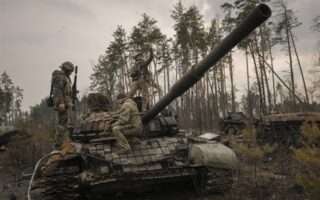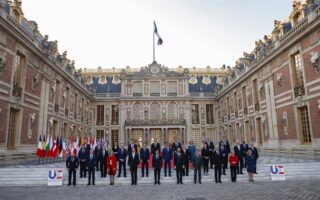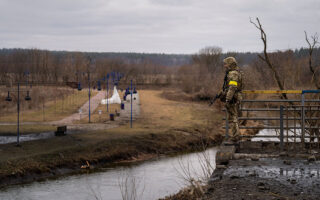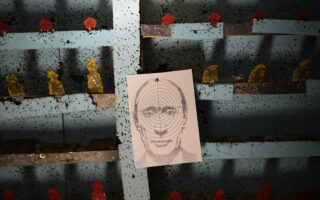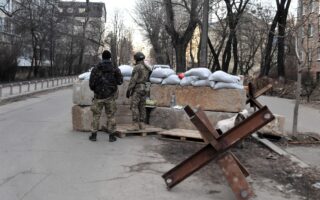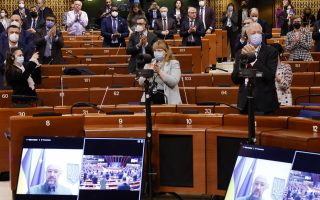The horror. And now what?
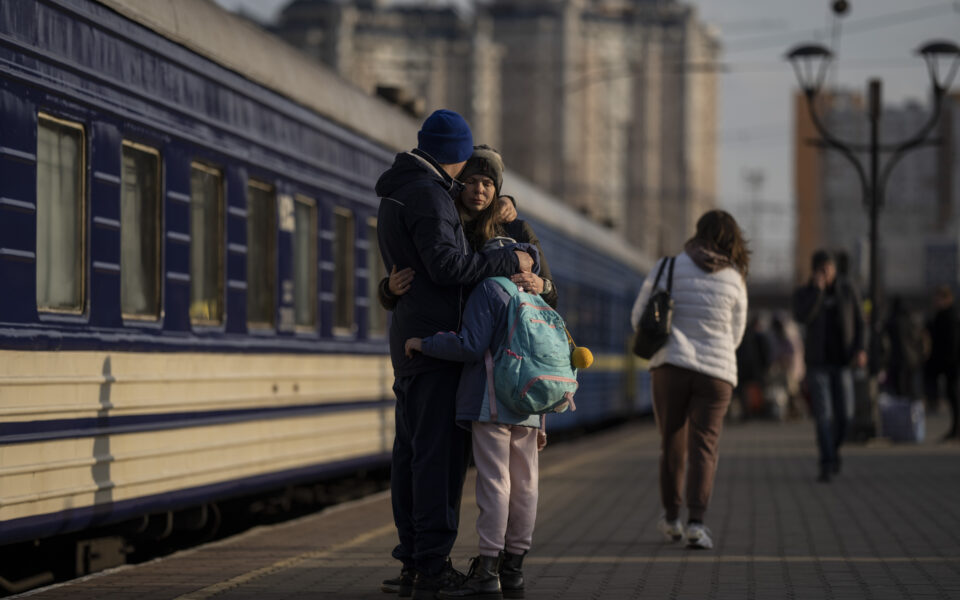
And now that our fears are confirmed – that the darkness in the human heart is always present, ready to take over our lives – what do we do? The horror in Ukraine unfolds before us as Putin’s allies are re-elected in European countries, the Germans and others still dither over blocking Russian energy imports, many of the world’s nations refuse to join sanctions against Russia and Moscow holds the UN Security Council hostage.
In Greece, there are various expressions of support for Putin – from parties and news media to social media trolls – even as the Russian prosecutor’s office orders an investigation into whether any violence was exerted on a pro-Russian demonstration in Athens over the weekend. At a time when events speak for themselves, on a continent that has paid a high price for war’s barbarism, there is a strange confusion. A confusion that is both intellectual and moral, which paralyzes democracies and encourages their enemies.
The Europeans are not only on the front line of this crisis but, whether they wish it or not, are protagonists. And yet, it is as if we cannot understand that our lives have been changed utterly. Despite the images of horror today, it is as if our leaders and citizens were more afraid at the start of the war than now, with the Ukrainians putting up such stiff resistance. Our inability to understand may stem from our need to believe that things are not so bad as to demand that we change outlook and our way of life. (The same applies to the climate crisis, after all.) And so, very quickly, we grow accustomed to the presence of Evil, we accept the inevitability of catastrophe.
Putin knows this. As a trained agent, he acts without emotion, without moral baggage, he knows his rivals’ weaknesses, he uses all weapons at his disposal. He saw how easily the world turned its back on Syria (and all that the Russians and Turks are doing there), on the Kurds, Armenians and Afghans – and on the Ukrainians in 2014. He may have been surprised by the Ukrainians’ readiness to fight this time, and he may not have expected such an immediate response from the EU. He did, however, know that the United States would not intervene militarily. And this was enough for him to take the first step.
Putin knows that fear of the “worst” (nuclear war) limits the West’s options. He moves incrementally, so as not to warrant a dynamic response. (Turkey does the same wherever it pursues territory and influence.) Until, without our realizing it, we are already at the point of no return.
Democracies don’t gamble on their nations’ future. Their leaders do not want to upset voters and their national economies. But they ought to know when the threat demands action that is immediate and decisive.
